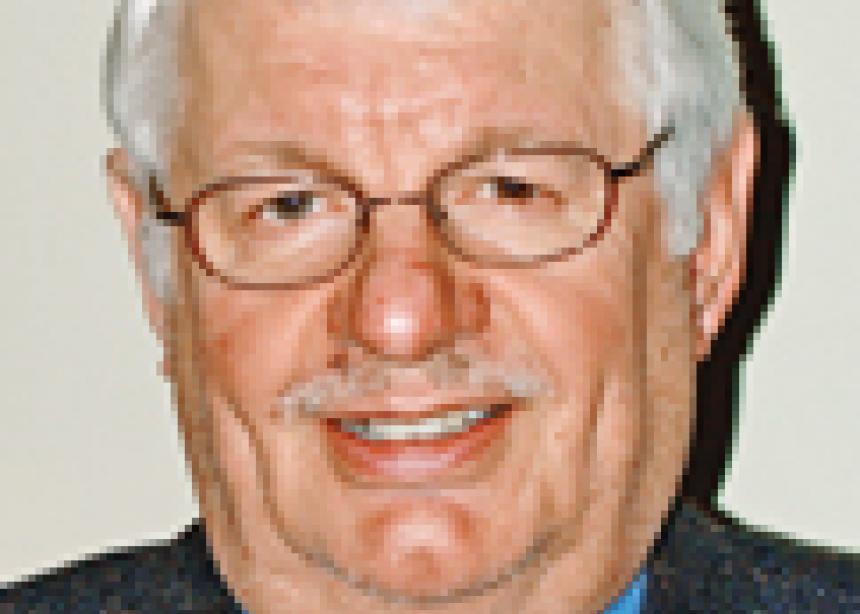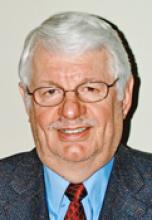I turned off the radio en route to my destination at the Ignatius Jesuit Centre, Guelph, Ont. A shooting in Toronto, a bombing in Boston, political chicanery in Ottawa—all were short-circuiting my gradual descent into solace. The noise was drowning my need for silence, a yearning for an uncluttered world.
This was the beginning of an inward spiritual journey graciously provided for me by the Canadian Mennonite Publishing Service board, a month-long sabbath intended to restore my inner self, replenish my diminishing energy drained by deadlines, my dwindling resolve to help unify a diverse community of faith struggling with its identity, transitioning from the enduring model of the old “print” media to a new untested “electronic” one, keeping the generations on the same page.
The wind-down took awhile. The tools of my craft refused to be quieted. The cell phone vibrated in its holster. The MacBook beckoned me through force of habit. Paco Bell, my ringtone, shattered the silence of the main lobby. This was, after all, a silent retreat, but at first the silence was intimidating, deafening and unwelcome. After some wrestling with the quietness, my spirits opened the door to this golden solitude.
I talked to myself in this first journal entry of free verse: “Gradually my world is changing, / Slowly transformed by sheer determination / Not to let the dissonant clutter of a habitual state of mind / Contaminate the ushering in of a peaceful harmony.”
As the week wore on, I seemed to be transported into a world where strangers communicated not with words, but with smiles, frowns or just blank stares; where a new intimacy with nature through hikes in the woods, fields and over streams connected me to the orchestral splendour of the birdsongs, the darting of the squirrels, the scuffing of the groundhog, the whistling of the winds in the tall pines, the bursting of spring in the bud and first flowers of the Loyola House garden.
A walk in the labyrinth before lunch gave me new perspective on time and mortality. The cosmos, 13 billion years old, the crunchy green grass growing in soil 4.5 billion years old, makes me just a speck in the scheme of things, my search for meaning perhaps only a meandering journey. Does the God of this vast creation view my efforts as enriching or robbing, value added or toll taken? Have I created a legacy or just a memoir?
Quiet moments of contemplation took me to the depths of my inner self, where demons denied are confronted and chastened, making room for angels to fill with blessing and peace, scattering the curse that holds faith hostage, replacing with serenity the anxiety that too often prevails in human exchanges.
The inspiration of writers outside my parochial purview gave me new vision, fresh perspective on the need for sabbath on an ongoing basis, something one of my own board members, Tim Reimer, reinforced with his call for ora et labora (prayer and work) in his welcome back. With new eyes, I see the need to offset my embedded work ethic with a new spiritual discipline already named in Leviticus 25:3-7, where sabbath was commanded not only for the Israelites, but for the land, the labourers and the animals.
Observant Jews, writes Barbara Brown Taylor in An Altar in the World, light two candles every Shabbat—the first announcing “made in God’s image, you too shall rest,” the second announcing “made in God’s image, you too are free,” remembering, of course, the exodus from Egypt after being delivered from Pharaoh’s bondage.
“By interrupting our economically sanctioned social order every week,” writes Taylor, “Sabbath suspends our subtle and not so subtle ways of dominating one another on a regular basis. Because our work is so often how we both rank and rule over one another, resting from it gives us a rest from our own pecking orders as well.”
This silent retreat also brought home to me the need to incorporate solitude and poetry for the rest of the journey, that time of life that Richard Rohr describes in Falling Upward as “the second half,” engaging in “writing the commentary on the text” created in the first half of life. “Life has stimulated us enough, and now we have to process and integrate it, however unconsciously. Silence and poetry start being our more natural voice and our more beautiful ear on stage.”
Amen.




Add new comment
Canadian Mennonite invites comments and encourages constructive discussion about our content. Actual full names (first and last) are required. Comments are moderated and may be edited. They will not appear online until approved and will be posted during business hours. Some comments may be reproduced in print.